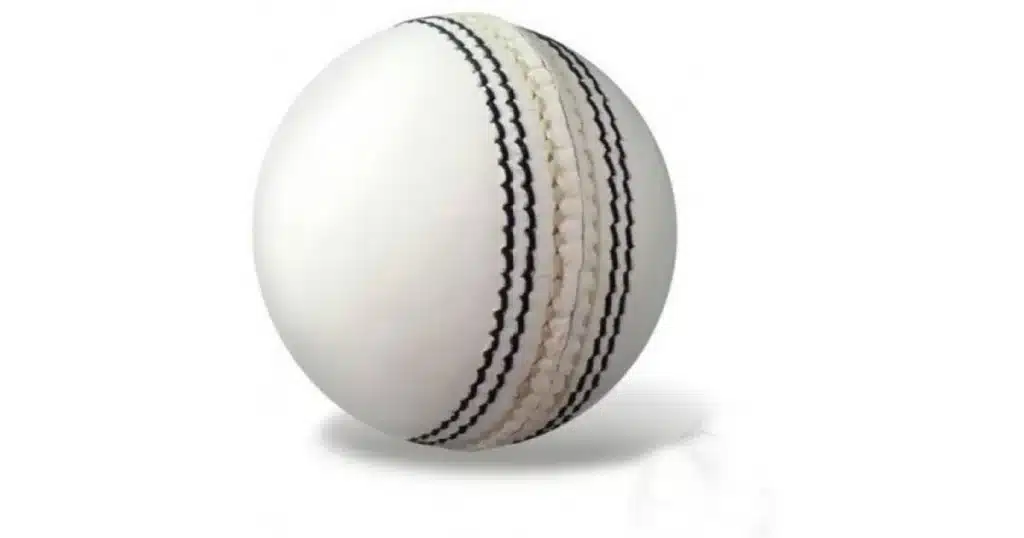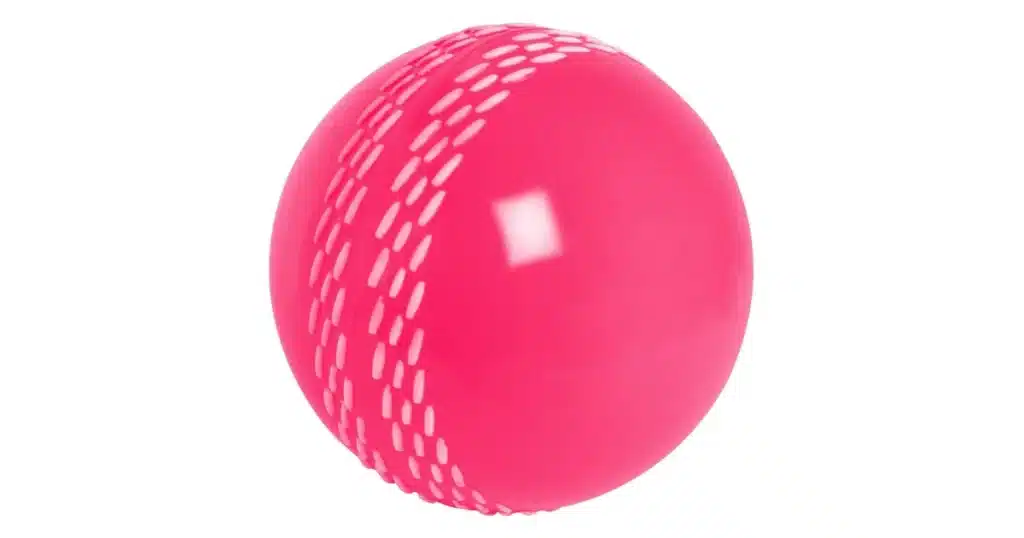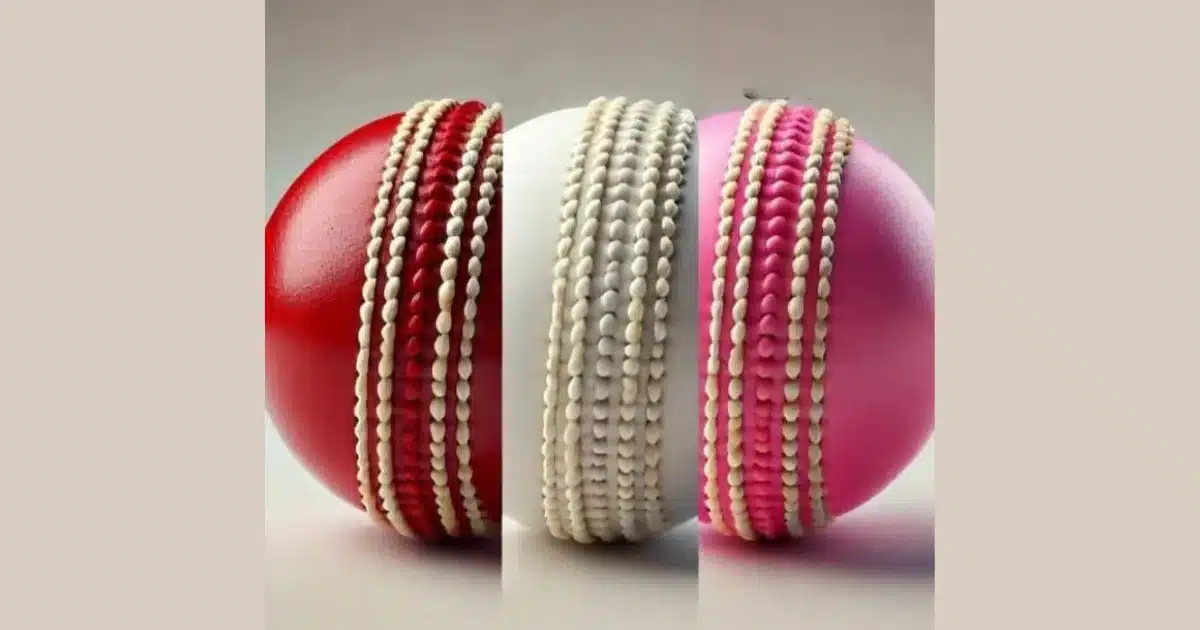Cricket has evolved beyond traditional daylight matches, and with this evolution came the need for different colored cricket balls. Each color serves a specific purpose, enhancing the game’s playability across various formats and conditions.
Red Ball: The Traditional Master

The Classic Choice
The red cricket ball stands as cricket’s traditional symbol, deeply rooted in Test cricket history. Its rich crimson leather has witnessed countless historic moments in the sport’s longest format.
Technical Advantages
- Superior swing characteristics
- Enhanced seam movement
- Longer-lasting construction
- Optimal visibility in daylight
Best Used For
- Test matches during day
- First-class cricket
- Traditional cricket formats
- Practice sessions focused on technique
Also Read: Champions Trophy 2025: Cricket’s Elite Eight Battle for Glory in Pakistan
White Ball: Limited Overs Specialist

Modern Innovation
White balls revolutionized cricket by enabling night games and creating new possibilities for limited-overs formats.
Key Features
- High visibility under floodlights
- Perfect for colored clothing
- Designed for shorter formats
- Enhanced television visibility
Primary Applications
- One Day Internationals
- T20 matches
- Day-night limited-overs games
- Practice sessions for white-ball cricket
Pink Ball: The Bridge Builder

Revolutionary Development
The pink ball represents cricket’s innovative spirit, bridging the gap between traditional Test cricket and modern viewing needs.
Special Characteristics
- Excellent visibility in both day and night
- Similar swing properties to red ball
- Specially designed leather coating
- Enhanced durability for Test cricket
Intended Use
- Day-night Test matches
- Long-format games under lights
- Practice sessions for day-night Tests
- First-class day-night games
Also Read: Champions Trophy 2025 Tickets Registration Now Open!
Impact on Playing Conditions
Weather Considerations
- Red balls perform best in sunny conditions
- White balls suit artificial lighting
- Pink balls adapt well to changing light conditions
Player Adaptation
- Batsmen need different techniques for each ball
- Bowlers adjust their strategies based on ball color
- Fielders adapt to varying visibility conditions
Conclusion
The cricket ball continues to evolve, with manufacturers researching new materials and colors to enhance the game further. This ongoing innovation ensures cricket remains adaptable to changing playing conditions and viewer preferences.
